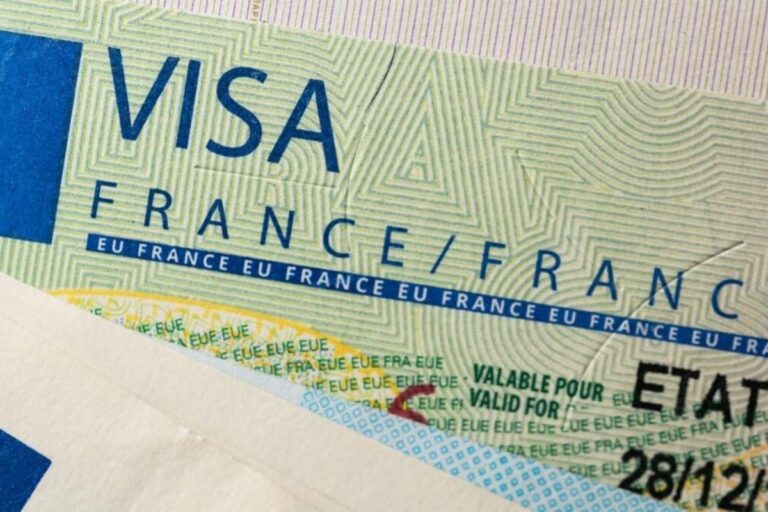France has called on Brussels to indefinitely postpone the implementation of new European Union green regulations targeting businesses, sparking a fresh debate over the bloc’s environmental policies and economic priorities. The French government argues that the proposed rules, aimed at accelerating corporate sustainability efforts, could impose undue burdens on industries still grappling with post-pandemic recovery and geopolitical uncertainties. This move highlights the ongoing tension within the EU between ambitious climate goals and the need to protect economic competitiveness across member states.
France Calls for Indefinite Postponement of EU Green Regulations Impacting Businesses
France has taken a firm stance against the imminent enforcement of new EU environmental regulations, urging Brussels to halt their implementation indefinitely. French officials argue that rushing these measures could severely disrupt economic stability and put undue pressure on businesses already grappling with post-pandemic recovery efforts. The call echoes widespread concerns among industry leaders about increased compliance costs and potential job losses across critical sectors.
Highlighting key areas of contention, France emphasizes the need for a more balanced approach that aligns environmental goals with economic realities. Their proposal includes:
- Extended timelines for compliance to allow businesses adequate preparation
- Greater flexibility in meeting regulatory targets tailored to national circumstances
- Enhanced support mechanisms such as subsidies or tax incentives for affected industries
| Sector | Primary Concern | France’s Proposed Solution |
|---|---|---|
| Manufacturing | High cost of green technology adoption | Phased implementation over 5 years |
| Agriculture | Impact on production yields | Flexible emission targets |
| Energy | Reliability of renewable sources | Incremental grid integration |
Economic Concerns Drive French Resistance to Stricter Environmental Compliance Deadlines
The French government has expressed strong reservations about the European Commission’s aggressive timeline for implementing new environmental regulations aimed at curbing industrial emissions and increasing sustainability across member states. French officials argue that the proposed deadlines fail to consider the immediate economic repercussions for local businesses, especially small and medium enterprises (SMEs) already struggling with post-pandemic recovery pressures. In particular, industries such as manufacturing and agriculture contend that rushed compliance could lead to job losses and destabilize regional economies, prompting calls for an indefinite delay to avoid imposing unmanageable financial burdens.
In response, France has outlined several key economic factors warranting reconsideration:
- High Retrofit Costs – Significant capital expenditure is required for industries to meet green technology standards.
- Supply Chain Vulnerabilities – Disruptions in sourcing sustainable inputs could further delay compliance.
- Competitiveness Concerns – Accelerated deadlines may put French businesses at a disadvantage compared to rivals in countries with looser regulations.
| Sector | Current Compliance Status | Estimated Delay Needed |
|---|---|---|
| Manufacturing | 45% compliant | 18 months |
| Agriculture | 30% compliant | 24 months |
| Transport | 55% compliant | 12 months |
Brussels Faces Growing Pressure to Reassess Implementation Timelines for Green Policies
Amid rising concerns over economic stability and business competitiveness, France has publicly called for Brussels to put a hold on the implementation timelines of the EU’s ambitious green regulations. French officials argue that the current deadlines place excessive strain on industries still recovering from recent global disruptions, emphasizing the need for a more flexible and realistic approach. This sentiment is rapidly gaining traction among member states balancing climate commitments with economic growth priorities.
Industry leaders and policymakers are highlighting several critical points:
- Transition Readiness: Many sectors require extended periods to adapt infrastructure and technology.
- Economic Impact: Immediate enforcement risks job losses and reduced investment.
- Regulatory Clarity: Ambiguity in certain provisions demands further consultation.
- Innovation Incentives: Calls for targeted support to stimulate green innovation alongside regulation.
| Aspect | Status | Recommended Action |
|---|---|---|
| Emission Targets | Stringent | Adjust timelines |
| Industrial Adaptation | In progress | Provide subsidies |
| SME Support | Insufficient | Enhance funding |
Experts Recommend Enhanced Dialogue to Balance Climate Goals With Business Viability
As the European Union pushes forward with aggressive green regulations, experts emphasize the necessity of a balanced approach that safeguards both environmental targets and economic stability. Industry leaders and environmental analysts are advocating for a platform where policymakers, businesses, and climate strategists can engage in constructive, transparent dialogue. They stress that sudden regulatory shifts, without ample consultation or transition periods, risk undermining business viability and could lead to resistance or implementation delays.
In this light, experts propose a series of collaborative frameworks designed to facilitate ongoing communication and align objectives:
- Regular stakeholder forums: Meetings to address concerns and share technological advancements.
- Gradual implementation timelines: Phased rollouts allowing companies to adapt effectively.
- Economic impact assessments: Frequent reviews ensuring climate rules do not stifle growth.
- Support mechanisms: Incentives and funding to ease the transition for affected sectors.
| Dimension | Current Challenge | Proposed Solution |
|---|---|---|
| Policy Adaptability | Rigid rules harm SMEs | Flexible standards with exemptions |
| Economic Impact | Job losses in sensitive sectors | Retraining programs and subsidies |
| Technological Readiness | Insufficient green tech adoption | Incentives for innovation |
To Wrap It Up
As the debate over the EU’s green regulations intensifies, France’s call for an indefinite delay underscores the complex balance between environmental ambitions and economic realities. Brussels faces mounting pressure to reconsider the timeline amid concerns from member states about the potential impact on businesses already grappling with inflation and supply chain disruptions. How the European Commission responds in the coming weeks will be closely watched, as it navigates the challenge of advancing the bloc’s green agenda while addressing the economic uncertainties faced by its members.




